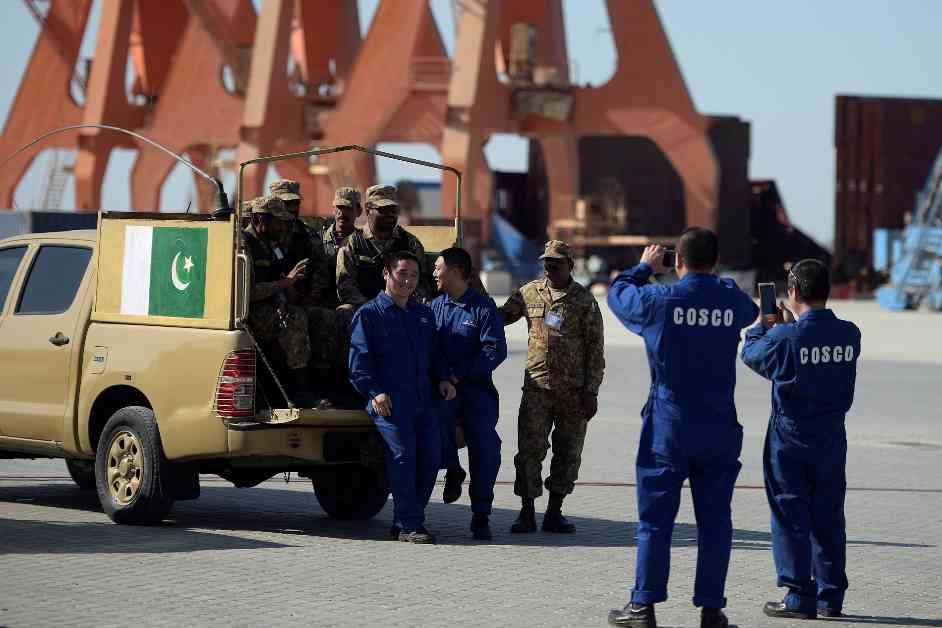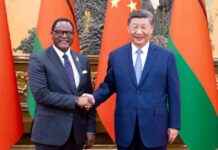The Role of Security Check Posts in Gwadar: A Comprehensive Analysis
The China-Pakistan Economic Corridor (CPEC) stands as a significant component of Beijing’s multi-trillion dollar Belt and Road Initiative (BRI), aiming to reshape global trade and transport infrastructure. Gwadar, a port city in Pakistan’s Balochistan province near the Iranian border, serves as the terminus of CPEC. The vision for CPEC involves linking Gwadar with Xinjiang, China’s vast “Uyghur Autonomous Region,” through an extensive network of highways, railways, and pipelines. This strategic initiative is designed to enhance trade between Pakistan and China, granting China access to the Indian Ocean for exports and providing a shorter route for the import of Middle Eastern oil.
Despite escalating local discontent and an insurgency targeting Chinese interests, Pakistani and Chinese officials persist in highlighting Gwadar’s potential. Assistant Foreign Minister Nong Rong, during a press briefing in Beijing that included Pakistani journalists, referred to Gwadar as “the second Shenzhen,” drawing parallels to the southern Chinese city that transformed into a symbol of China’s economic and technological prowess.
Security Concerns and Development in Gwadar
However, a closer examination reveals that Gwadar’s reality diverges from the grand aspirations associated with CPEC projects. Maulana Hidayat-ur-Rehman, a prominent figure in Gwadar, bluntly stated, “There is no CPEC in Gwadar, except security check posts that exist in the name of CPEC in Gwadar. So, if you ask me, CPEC projects in Gwadar are the name of security check posts.” This assertion underscores the predominant presence of security infrastructure rather than tangible economic development in the region.
Gwadar’s port complex, which China commenced investing in back in 2002 with an initial commitment of $248 million, remains central to CPEC’s ambitions. Despite over two decades passing since the inception of Chinese investments in Gwadar, optimism regarding its future persists among Chinese officials. China’s Ambassador to Pakistan, Jiang Zaidong, emphasized Gwadar’s transformative potential, envisioning it as a catalyst for regional change through CPEC initiatives.
Local Discontent and Protests in Gwadar
Despite the optimism expressed by Chinese officials, the local population in Gwadar harbors mounting dissatisfaction with the unfolding developments. Maulana Hidayat-ur-Rehman, a vocal advocate for the rights of Baloch people in Gwadar, has spearheaded protests against the perceived neglect of local needs and rights. The proliferation of security checkpoints in conjunction with port development has emerged as a point of contention, significantly impacting the daily lives of Gwadar residents.
The plight of local fishermen, epitomized by Maasi Zainab, symbolizes the challenges faced by Gwadar’s populace. Restrictions imposed on fishing activities due to security concerns during VIP visits disrupt livelihoods and exacerbate economic hardships for residents. The deployment of security measures aimed at safeguarding Chinese interests has inadvertently intensified tensions and disillusionment among the local community.
Maulana Hidayat-ur-Rehman’s advocacy for the marginalized voices in Gwadar has galvanized a movement under the banner of Gwadar Ko Huqooq Do Tehreek (Give Rights to Gwadar Movement), attracting widespread support from Baloch protestors. The resolute stance taken by individuals like Zainab and Maulana Hidayat-ur-Rehman underscores the grassroots resistance to perceived injustices and neglect in the unfolding CPEC narrative.
Political Uncertainty and Economic Implications
The evolving political landscape in Pakistan poses challenges to the sustained progress of CPEC initiatives. Associate Professor of Political Science at the University of Balochistan, Abdul Zahir Mengal, highlights the discord within Pakistan’s political sphere, which has implications for Chinese investments under CPEC. The transition of leadership following the interim prime minister’s tenure underscores the potential for renegotiation of agreements and a reevaluation of strategic priorities.
China’s Third Belt and Road Forum for International Cooperation in Beijing showcased the complexities of Pakistan-China relations, with interim Prime Minister Anwaar-ul-Haq Kakar’s engagements signaling a commitment to bilateral cooperation. However, the transient nature of political leadership in Pakistan introduces uncertainties that could impact the trajectory of CPEC projects and strategic alliances with China.
The specter of political violence, exemplified by the tragic incident of a suicide bombing at a political rally in Khyber Pakhtunkhwa province, underscores the pervasive security challenges confronting CPEC. The resurgence of militant activities in border regions adjacent to CPEC routes poses a tangible threat to the stability and viability of ongoing projects, necessitating robust security measures to safeguard Chinese nationals and investments.
Security Imperatives and Economic Realities
Efforts to mitigate security risks and protect CPEC projects have been paramount in navigating the complex geopolitical landscape of Pakistan. Pakistan’s former Ambassador to China, Moin ul Haque, underscored the collaborative endeavors undertaken to secure CPEC projects, emphasizing the imperative of countering external threats that seek to disrupt bilateral relations between Pakistan and China. The symbiotic relationship between security imperatives and economic prosperity underscores the intricate balance required to sustain the momentum of CPEC initiatives amidst evolving challenges.
The economic implications of terrorism and political instability on CPEC projects have reverberated across Pakistan’s national economy, underscoring the interconnectedness of security and economic development. Professor Muhammad Feyyaz, an expert in violent behavior, underscores the detrimental impact of terrorism on Pakistan’s economic landscape and underscores the imperative of addressing security concerns to foster sustainable growth and prosperity.
The transformative potential of CPEC projects, epitomized by the envisioned prosperity of Gwadar, stands juxtaposed against the prevailing realities of economic stagnation and disillusionment among local stakeholders. Shams ul-Haq Kalmati, president of the Gwadar Chamber of Commerce and Industry, lamented the lack of substantive economic gains for local businesses and traders, highlighting the dissonance between CPEC’s promise and its actual impact on grassroots economic development.
Reflecting on the broader implications of CPEC’s trajectory, Islamabad-based economist Sajid Amin Javed underscores the multifaceted challenges hindering the realization of CPEC’s transformative potential. The convergence of political, economic, and security challenges underscores the imperative of recalibrating strategic priorities and fostering sustainable partnerships to navigate the evolving landscape of CPEC initiatives.
Strategic Realignment and Future Prospects
The recalibration of Chinese investments and strategic priorities signals a broader reassessment of CPEC initiatives in the wake of evolving geopolitical dynamics. Hasan H. Karrar, an associate professor at Lahore University of Management Sciences, posits that China’s strategic investments are undergoing a transformative shift, necessitating a nuanced approach to future engagements in developing countries. The evolving contours of Chinese investments underscore a paradigm shift that prioritizes sustainable partnerships and mutually beneficial cooperation in the pursuit of shared prosperity.
Chinese officials’ candid acknowledgment of the challenges confronting CPEC projects underscores a pragmatic reassessment of strategic priorities and operational modalities. The delineation of decision-making processes and the imperative of fostering cohesive partnerships underscore China’s commitment to navigating the complexities of CPEC initiatives amidst evolving political landscapes and regional dynamics.
The imperative of self-reliance and sustainable development resonates in China’s commitment to fostering enduring partnerships with Pakistan, predicated on mutual respect and shared prosperity. While challenges persist in the realization of CPEC’s transformative potential, the enduring resolve of stakeholders to navigate the complexities of economic development and security imperatives underscores the resilience and fortitude required to surmount obstacles and forge a path towards sustainable growth and prosperity.
In conclusion, the evolving landscape of CPEC initiatives in Gwadar underscores the intricate interplay between security imperatives, economic development, and political dynamics. The resilience of local stakeholders, exemplified by Maulana Hidayat-ur-Rehman and grassroots activists, underscores the imperative of amplifying marginalized voices and fostering inclusive development in the pursuit of shared prosperity. As China and Pakistan navigate the complexities of CPEC projects, the imperative of recalibrating strategic priorities and fostering enduring partnerships remains paramount in realizing the transformative potential of this strategic initiative.

















